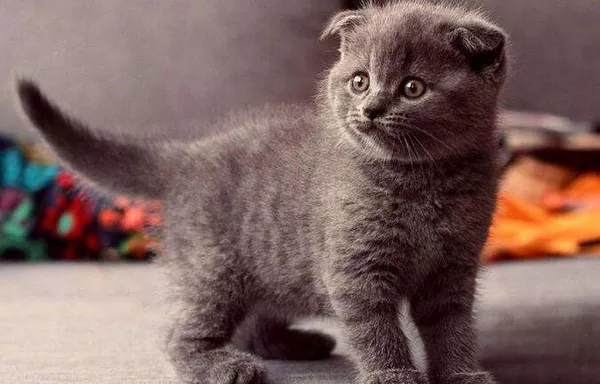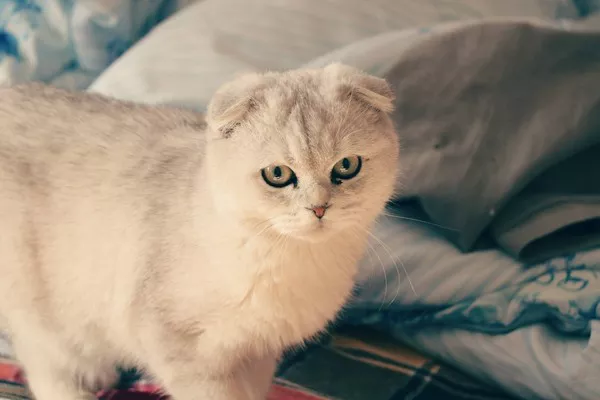In the realm of feline companionship, the Abyssinian cat stands out as a striking and energetic breed. With their distinctive ticked coat and playful nature, they often capture the hearts of cat lovers. However, despite their undeniable charm, Abyssinians are not suited to every household. Prospective owners should carefully consider several factors before welcoming one of these spirited cats into their homes. From breed characteristics to health considerations, behavioral aspects, and cost of care, here’s a comprehensive look at why an Abyssinian cat might not be the ideal choice for everyone.
Breed Characteristics:
Abyssinians are renowned for their high energy levels and need for interaction. These cats are not ones to lounge around all day; instead, they thrive on activity and mental stimulation. Their playful demeanor means they require ample playtime and engagement to prevent boredom and behavioral issues. Abyssinians are curious and intelligent, often seeking out new experiences and adventures. This breed is not one to shy away from exploration, making them adept climbers and jumpers. Their active nature means they may not be the best fit for households seeking a more sedentary pet.
Time Commitment:
Owning an Abyssinian cat requires a significant time commitment. These cats demand regular play sessions and attention to keep them mentally and physically stimulated. Interactive toys, puzzle feeders, and dedicated playtime are essential to prevent boredom and ensure their well-being. Neglecting their need for stimulation can lead to destructive behaviors, such as excessive scratching or vocalization. Potential owners must be prepared to devote time each day to engage with their Abyssinian and provide outlets for their energy.
Health Considerations:
While Abyssinians are generally healthy cats, they are predisposed to certain health issues that owners should be aware of. Periodontal disease is common among Abyssinians, emphasizing the importance of regular dental care and veterinary check-ups. Additionally, kidney issues and genetic conditions like pyruvate kinase deficiency can affect some individuals within the breed. Responsible owners should be vigilant about monitoring their cat’s health and seeking prompt veterinary care when necessary.
Behavioral Aspects:
Abyssinians have distinct behavioral traits that may pose challenges for some owners. Their natural inclination to climb high places can result in mischief if not provided with appropriate outlets for this behavior. Cat trees and shelves can help satisfy their desire to perch and observe their surroundings. Mental stimulation is also crucial for Abyssinians, as boredom can lead to destructive behaviors. Owners must be prepared to engage their cats in interactive play and provide enrichment activities to keep them mentally engaged.
Cost of Care:
While Abyssinians may not have extensive grooming needs due to their short coat, they still require regular maintenance. This includes routine brushing to remove loose hair and prevent matting. Additionally, owners should budget for high-quality food, veterinary care, and potential emergency expenses. Abyssinians are an investment in terms of both time and finances, and prospective owners should be prepared for the long-term commitment involved in caring for this breed.
Living Environment:
The ideal living environment for an Abyssinian cat is one that offers ample space for exploration and play. They thrive in homes with plenty of vertical space and opportunities for climbing. Apartments or small living spaces may not provide enough room for these active cats to roam and exercise. Additionally, Abyssinians crave human companionship and may become stressed or anxious if left alone for extended periods. Potential owners should consider their lifestyle and living situation carefully before bringing an Abyssinian into their home.
Interaction with Other Pets:
Abyssinians are generally sociable cats and can get along well with other pets if properly introduced and socialized. However, their energetic nature may not always be appreciated by more laid-back companions. It’s essential to monitor interactions between Abyssinians and other pets and provide opportunities for positive reinforcement and socialization. Additionally, some Abyssinians may assert their dominance over other pets, requiring careful management to prevent conflicts.
Longevity and Commitment:
Owning an Abyssinian cat is a long-term commitment that should not be taken lightly. With proper care, Abyssinians can live well into their teens or even early twenties. Potential owners should be prepared for the responsibilities that come with caring for a cat for potentially two decades or more. This includes providing for their physical and emotional needs throughout their lifespan and being prepared for any age-related health issues that may arise.
Alternative Options:
For individuals who may not have the time or resources to dedicate to an Abyssinian cat, there are plenty of alternative options to consider. Less active breeds, such as the Persian or Ragdoll, may be better suited to a more relaxed lifestyle. Additionally, adopting an adult cat from a shelter can be a rewarding experience and may provide a better match for individuals seeking a lower-energy pet. It’s essential to research different breeds and consider your own lifestyle and preferences before committing to pet ownership.
In conclusion, while Abyssinian cats are undoubtedly captivating and affectionate companions, they are not the right choice for everyone. Prospective owners should carefully consider their energy levels, time commitment, and living situation before bringing an Abyssinian into their home. With proper care and attention, Abyssinians can make wonderful pets, but it’s essential to be realistic about the demands of caring for this active and spirited breed.
Related Topics:























